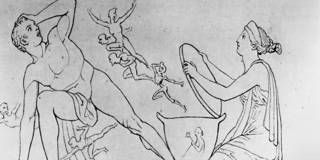Those who warn about the potential dangers and unintended consequences of artificial intelligence and machine learning are right to invoke Pandora and her jar of miseries. In fact, the myth of Pandora is actually more appropriate than many realize, not for what it says about naive curiosity, but for what it tells us about humankind's relationship with technology.
STANFORD – In discussions about the implications of artificial intelligence (AI), someone almost always evokes the ancient Greek myth of Pandora’s box. In the modern fairytale version of the story, Pandora is depicted as a tragically curious young woman who opens a sealed urn and inadvertently releases eternal misery on humankind. Like the genie that has escaped the bottle, the horse that has fled the barn, and the train that has left the station, the myth has become a cliché.

STANFORD – In discussions about the implications of artificial intelligence (AI), someone almost always evokes the ancient Greek myth of Pandora’s box. In the modern fairytale version of the story, Pandora is depicted as a tragically curious young woman who opens a sealed urn and inadvertently releases eternal misery on humankind. Like the genie that has escaped the bottle, the horse that has fled the barn, and the train that has left the station, the myth has become a cliché.